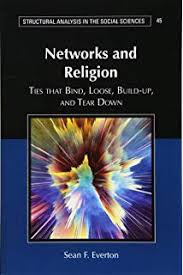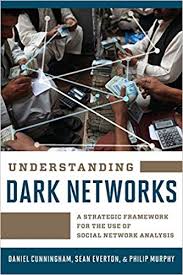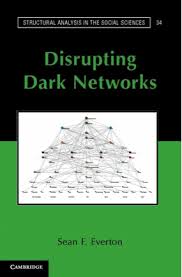CORE Lab Research - CORE Lab
Research
Social network research is the backbone of the Lab’s research. Lab staff have published many scholarly texts as well as conducted sponsored research in collaboration with practitioners pertaining to offline and online, digital-based social networks. More specifically, the team’s research addresses social networks operating within a broad range of contexts ranging from resistance networks, to the maritime domain. Furthermore, the Lab conducts research, in most cases, with practitioners in the following areas as well as others:
- Organizational Mapping and Network Engagement
- Open Source Tool Development
- System Strategic Thinking
- Strategic and Operational System Dynamics Modeling
CORE Lab Projects and Tools
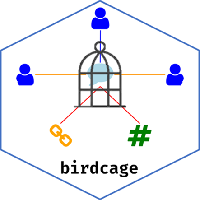
Birdcage
birdcage is an open source analytic tool that provides users with the means to ingest, search, explore, and analyze Twitter data from descriptive, spatial, temporal, and network perspectives. The app can efficiently ingest large data sets in a wide variety of formats, including common vendor schemata. Users can visualize temporal patterns, evaluate descriptive statistics, interactively map and search geotagged content, traverse the connections between every kind of entity (tweets, users, media, URLs, and hashtags), and explore all of their data in a familiar tabular format. Users can also export tabular data to widely-supported CSV or Excel files, as well as extract and export user-to-user social network analysis data sets to Gephi-friendly GraphML files. The core functionality is also available as an open source R package (tweetio) for users desiring the flexibility of a command-line interface.
SNA Data Explorer
The SNA Data Explorer is an SNA tool for relational data exploration. It offers analysts the opportunity for in-depth analysis with access to many commonly used social network statistics, as well as includes interactive visuals, tables, and search features as well as contains built-in cheat sheets for analysts examining real-world data.
COREmariner
COREmariner is a Maritime Domain Awareness (MDA) application that helps identify maritime networks and enhance real-time awareness and tracking of shipping activities for operational purposes. COREmariner generates maritime networks from Automated Information Systems (AIS) and open-source data on vessels of interest (VOI) based on the companies associated with the VOI (for example, their owners and operators). The maritime networks are analyzed for insights into the movements of VOI in the areas of interest and the associations of ships with their companies. COREmariner allows users to visualize and analyze the information geospatially and relationally and export the results.
The CORE Lab, in cooperation with the Norwegian Defense Research Establishment (Forsvarets forskningsinstitutt, FFI), developed COREmariner. The Lab and Norwegian FFI won the 2019 innovation challenge at NITECH19. This was NATO Communications and Information Agency's fourth annual industry conference geared towards accelerating transformational technology solutions to NATO's most pressing issues. There were 60 entries from 11 countries, and CORE Lab/FFI took first place.
Dark Network Archive
CORE Dark Network Archive (DNA) is a web-based interactive archive of public and unclassified data on dark networks (i.e., clandestine groups such as terrorist groups and insurgencies) that academics, researchers, students and Navy, DoD, and other government agency analysts from around the world have access.
Legacy Projects
The following is a list of technologies no longer maintained by the CORE Lab.

Lighthouse
Lighthouse--The Lighthouse project focused on the integration of commercial-off-the-shelf and open-source technology to help operational practitioners collect, structure, and ultimately analyze real-world data.

CORE SSE
CORE SSE--A practitioner developed solution to resolving shortfalls with Sensitive Site Exploitation (SSE) that is comprised of a mobile device application with back end structure that can process, structure, and fuse captured data in near real-time from the objective with intelligence databases.
 Social Media Exploitation
Social Media Exploitation
Social Media Exploitation--CORE develops approaches to exploit social media for mapping networks of interest as well as understanding the operational environment by analyzing open source social media.
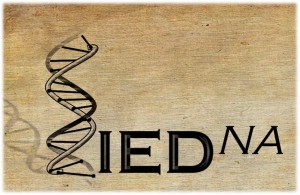
IEDNA
IEDNA--IEDNA permits collectors to collect, store, and analyze IED data collected in operational settings. As an analytic approach, it helps users identify potential bomb-making cells by virtue of IED similarities.
Sample Publications
|
2018. Sean F. Everton. Networks and Religion: Ties That Bind, Loose, Build-up, and Tear Down. New York and Cambridge: Cambridge University Press. |
2016. Daniel Cunningham, Sean Everton, and Phil Murphy. Understanding Dark Networks: A Strategic Framework for the Use of Social Network Analysis. Lanham, MD: Rowman and Littlefield. |
2012. Sean F. Everton. Disrupting Dark Networks. New York and Cambridge: Cambridge University Press. |
2018. Sean F. Everton. "Hiding in Plain Sight." Nature Human Behaviour 2:115-116.
2017. Sean F. Everton, Lee A. Freeman, and Robert Schroeder. "Social Media Exploitation by Covert Networks: A Case Study of ISIS." Pp. 97-120 in Communications of the Association for Information Systems. Available at: http://aisel.aisnet.org/cais/vol41/iss1/5.
2017. Sean F. Everton, Dan Cunningham, and Kristen Tsolis. "Exploring the Spatial and Social Networks of Transnational Extremist Organizations." In Olivier Walter and William F.S. Miles (Eds.), African Border Disorders: Addressing Transnational Organizations (pp. 39-59), Abingdon, UK: Routledge.
2015. Sean F. Everton, "Social Networks and Religious Violence," Review of Religious Research (Springer).
2015. Daniel Cunningham, Sean F. Everton, and Philip J. Murphy. "Casting More Light on Dark Networks." In L. Gerdes (Ed.), Illuminating Dark Networks: The Study of Clandestine Groups and Organizations (Structural Analysis in the Social Sciences, pp. 171-185). Cambridge: Cambridge University Press.
2014. Sean F. Everton and Daniel Cunningham. "Terrorist Network Adaptation to a Changing Environment." In Carlo Morselli (Ed.), Crime and Networks (pp. 287-308). London: Routledge Press.
2013. Dan Cunningham, Sean Everton, Greg Wilson, Carlos Padilla and Doug Zimmerman. "Brokers and Key Players in the Internationalization of the FARC." Studies in Conflict and Terrorism, 36:6, 477-502.
2012. Rob Schroeder, Sean Everton, and Russel Shepherd. "Mining Twitter Data from the Arab Spring." Combatting Terrorism Exchange, 2:4, 54-64.

